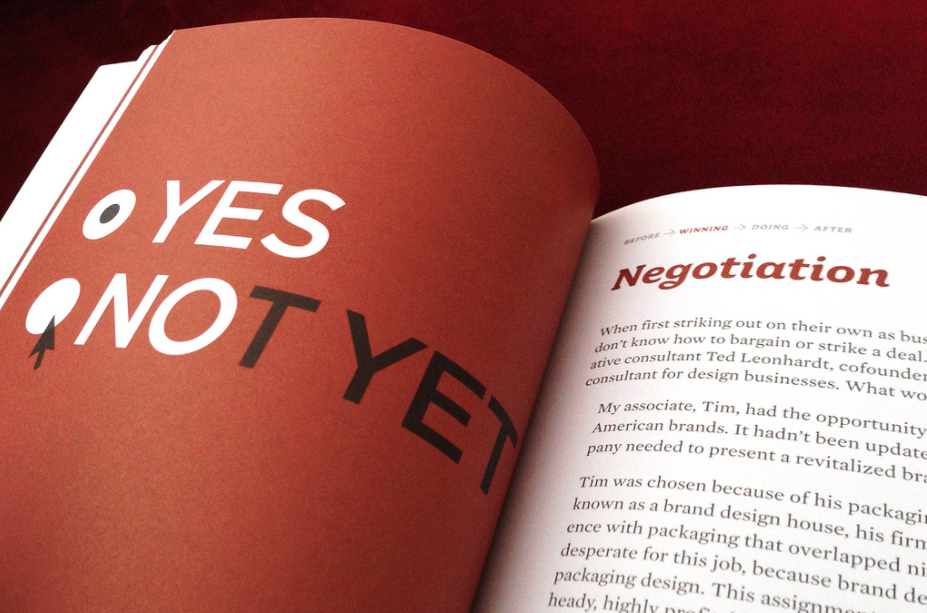Women often tell me that they are afraid of negotiation, that they either just do not know how to do it to get what they want or that they do not have confidence that they will be ready enough for any negotiation.
Whether it is a salary negotiation, bidding on a job, or solving a problem on a job site, you can have an effective negotiation and get the results you seek following some logical and well-planned steps.
The very first step is to start in your own head. The voices in our heads often dissuade us of our ability to successfully negotiate. Just say "no" to those voices!
Negotiation does not need to be equated with conflict. In fact, starting with thinking about the issue as a problem to solve and that your negotiation partner is part of your process in reaching a solution will help reorient your view. Because women are natural collaborators, if we approach our negotiations as getting a deal done rather than getting a "win," we are more likely to enter the process with confidence. And confidence will get you halfway to your goal!
Your mindset—how you look at the world and your attitudes that influence how you interpret situations—plays a key role in how you negotiate. Often our mindset in a negotiation is that we are in opposition to our negotiation partner. In many situations, your negotiation partner may hold an opposing view or position. However, if you start with the mindset that your "opponent" is instead your "partner" in reaching your goal, your entire mindset and all of your resulting actions will change.
Instead of, "I can't believe they won't give me a raise," think, "I can explain to you why a raise will be beneficial not only for me but also for the firm." You can see how your discussion will automatically change.
In addition, when you enter into a discussion with this collaborative mindset , you tap into your natural tendency to find effective solutions and carry an inherent amount of self confidence that will make others want to agree with you.
In relationships, whether they are person or business relationships, no one really wants conflict. If your mindset is such that you are seeking a collaborative solution, others will naturally want to join you on this journey.
Now that your mindset is attuned, we will discuss in my negotiation blog some practical steps to prepare for your negotiation. If you have any comments or questions, please post them and start a dialogue.
Related Stories
Adaptive Reuse | Oct 22, 2024
Adaptive reuse project transforms 1840s-era mill building into rental housing
A recently opened multifamily property in Lawrence, Mass., is an adaptive reuse of an 1840s-era mill building. Stone Mill Lofts is one of the first all-electric mixed-income multifamily properties in Massachusetts. The all-electric building meets ambitious modern energy codes and stringent National Park Service historic preservation guidelines.
MFPRO+ News | Oct 22, 2024
Project financing tempers robust demand for multifamily housing
AEC Giants with multifamily practices report that the sector has been struggling over the past year, despite the high demand for housing, especially affordable products.
Performing Arts Centers | Oct 21, 2024
The New Jersey Performing Arts Center breaks ground on $336 million redevelopment of its 12-acre campus
In Newark, N.J., the New Jersey Performing Arts Center (NJPAC) has broken grown on the three-year, $336 million redevelopment of its 12-acre campus. The project will provide downtown Newark 350 mixed-income residential units, along with shops, restaurants, outdoor gathering spaces, and an education and community center with professional rehearsal spaces.
Office Buildings | Oct 21, 2024
3 surprises impacting the return to the office
This blog series exploring Gensler's Workplace Survey shows the top three surprises uncovered in the return to the office.
Healthcare Facilities | Oct 18, 2024
7 design lessons for future-proofing academic medical centers
HOK’s Paul Strohm and Scott Rawlings and Indiana University Health’s Jim Mladucky share strategies for planning and designing academic medical centers that remain impactful for generations to come.
Sports and Recreational Facilities | Oct 17, 2024
In the NIL era, colleges and universities are stepping up their sports facilities game
NIL policies have raised expectations among student-athletes about the quality of sports training and performing facilities, in ways that present new opportunities for AEC firms.
Codes and Standards | Oct 17, 2024
Austin, Texas, adopts AI-driven building permit software
After a successful pilot program, Austin has adopted AI-driven building permit software to speed up the building permitting process.
Resiliency | Oct 17, 2024
U.S. is reducing floodplain development in most areas
The perception that the U.S. has not been able to curb development in flood-prone areas is mostly inaccurate, according to new research from climate adaptation experts. A national survey of floodplain development between 2001 and 2019 found that fewer structures were built in floodplains than might be expected if cities were building at random.
Seismic Design | Oct 17, 2024
Calif. governor signs limited extension to hospital seismic retrofit mandate
Some California hospitals will have three additional years to comply with the state’s seismic retrofit mandate, after Gov. Gavin Newsom signed a bill extending the 2030 deadline.
MFPRO+ News | Oct 16, 2024
One-third of young adults say hurricanes like Helene and Milton will impact where they choose to live
Nearly one-third of U.S. residents between 18 and 34 years old say they are reconsidering where they want to move after seeing the damage wrought by Hurricane Helene, according to a Redfin report. About 15% of those over age 35 echoed their younger cohort’s sentiment.

















